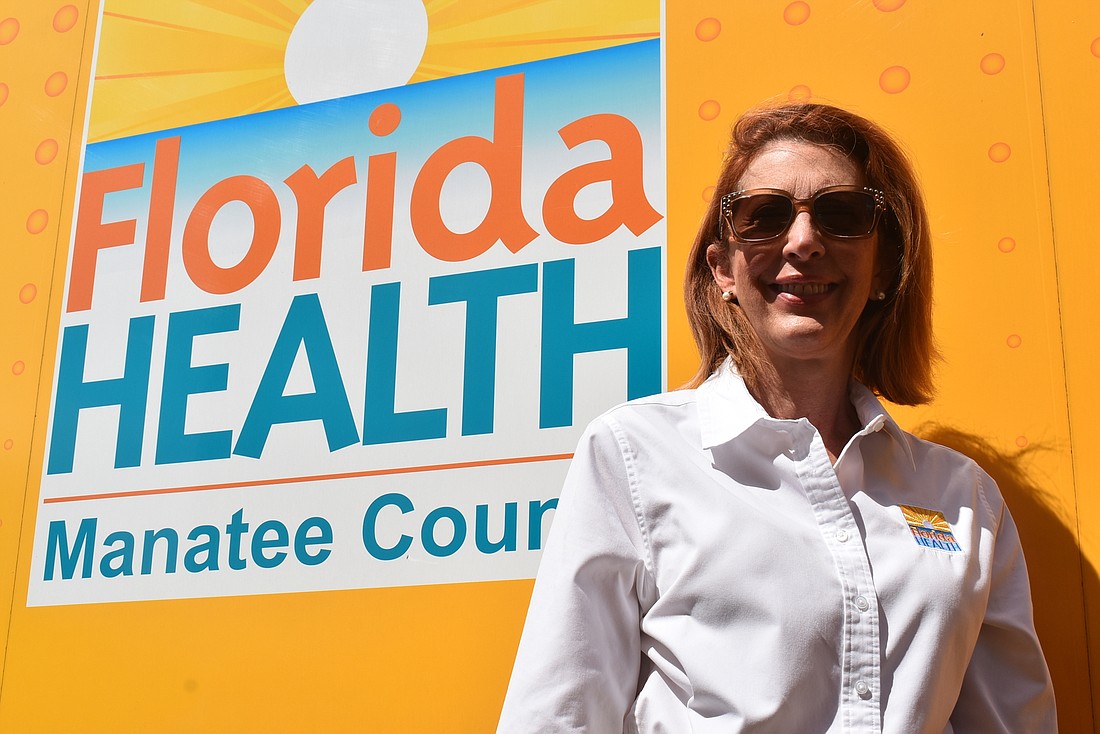- January 12, 2025
-
-
Loading

Loading

Mill Creek resident Mary Anne McDevitt hasn’t seen her little sister, Geralyn Kersey, in three years.
When the 63-year-old Kersey moved to Port St. Lucie in March 2020, McDevitt, who is six years older, thought they would be seeing each other all the time.
But Kersey has not left her house since the COVID-19 pandemic began spreading. She has a serious heart condition, and contracting COVID-19 could be life-threatening.
McDevitt and Kersey are both fully vaccinated now, and Kersey finally feels safe enough to leave the house. She’s driving west for her great nephew's birthday party March 27, a party she couldn't attend if she wasn't vaccinated.
“That's how scared people have been,” McDevitt said. “But I think that's how much better they feel once they get the shot.”
It is now safe for fully vaccinated adults to visit other fully vaccinated adults or unvaccinated but low-risk individuals from one other household without wearing masks or social distancing, according to the latest Centers for Disease Control and Prevention guidelines.
This guidance has cleared the way for long-awaited occasions such as Kersey’s visit. Country Club resident Dr. Jennifer Bencie, the Manatee County Health Officer for the Florida Department of Health, said the newest guidelines are a positive sign.
“It's a bright light in what has been a very dark year,” Bencie said. “I've worn a mask in my home for the past year. I have elderly parents who have underlying medical conditions. We're finally at that point where we don't have to wear masks in the household. That's a huge relief, personally, and obviously professionally, to be able to see that happening in our community, where people have done everything right. They want to see that it's paid off.”
The other change in CDC guidelines: Fully vaccinated people do not need to quarantine or get tested unless they have symptoms or live in group settings, such as group homes or correctional facilities.
However, Bencie and the CDC said it is still imperative for fully vaccinated people to wear masks and practice social distancing in public. The vaccines are highly effective at preventing moderate to severe cases of COVID-19, but fully vaccinated people can still contract the virus and spread it to others.
There’s another reason it’s especially important to continue wearing masks and social distancing, variants. It’s unclear if any existing COVID-19 variants are more resistant to vaccines, but Bencie said it’s wise to assume “you’re never 100% fully protected.”
The more COVID-19 spreads from person to person, the more chance the virus has to mutate into a strain immune to current vaccines. Bencie said COVID-19 vaccines could become like flu shots, where people will have to get a new one each year to guard against mutations.
Bencie also refuted one rumor about the vaccine. She said it is not possible to test positive for COVID-19 because of the vaccine. She also said the latest research shows herd immunity will be reached when somewhere between 70% and 90% of the U.S. population is vaccinated. It won’t be possible to know exactly what the figure is until far more people are vaccinated.
In the here and now, many who are vaccinated are enjoying a newfound sense of security. Edgewater residents John and Regina Joly went to Naples on March 22 to visit two married couples they hadn’t seen since 2019. In fact, 2020 was the first time in 40 years the three couples didn’t gather to see one another at least once. The Jolys are excited to eat in a restaurant with them, something they’ve done by themselves during the pandemic, but much less often with friends.
“Everybody's just dying to have some fun and laugh and get the fear factor off a little bit,” John Joly said. “It's been strangling.”
Central Park resident Gene Gelpke received his second vaccination March 18. He’s planning to go to The Grove for happy hour with some friends on April 6. He wanted to wait until at least two weeks after his second dose, which is the amount of time it takes the vaccine to reach full effectiveness.
Gelpke loves supporting local restaurants, but he has only eaten takeout over the past year. He’s excited to enjoy the experience in person again.
Country Club resident Jon Garrick, 70, is fully vaccinated. However, he and his wife, 68-year-old Brenda Fiske, neither of whom have underlying conditions, are remaining selective about where they go. The couple went for a drive along the coast March 19, but they didn’t get out of the car at St. Armands Circle and Lido Beach because of how crowded the area was.
“Do I like wearing a mask?” Garrick said. “Absolutely not. Do I like having to keep my distance from friends that I'm used to shaking hands with or hugging or something like that? No, I hate it. But sometimes you have to do things that you don't enjoy doing.”
Another example is how they will celebrate their birthdays. Garrick’s is March 31 and Fiske’s is April 1. They usually get together with two friends who also celebrate their birthdays the same time of year, but they won’t be doing so this year. Garrick and Fiske may go out to eat together, but they will select a restaurant that is observing social distance protocols.
“I would hate to feel that I had spread something to someone else, that they could get really sick or possibly die from it,” Garrick said. “So it's not just selfishness. I'm not scared of dying. I fought in two different wars, and I'm not scared of dying. I'm scared of being incapacitated and not being able to get out and do the things I want to do.”